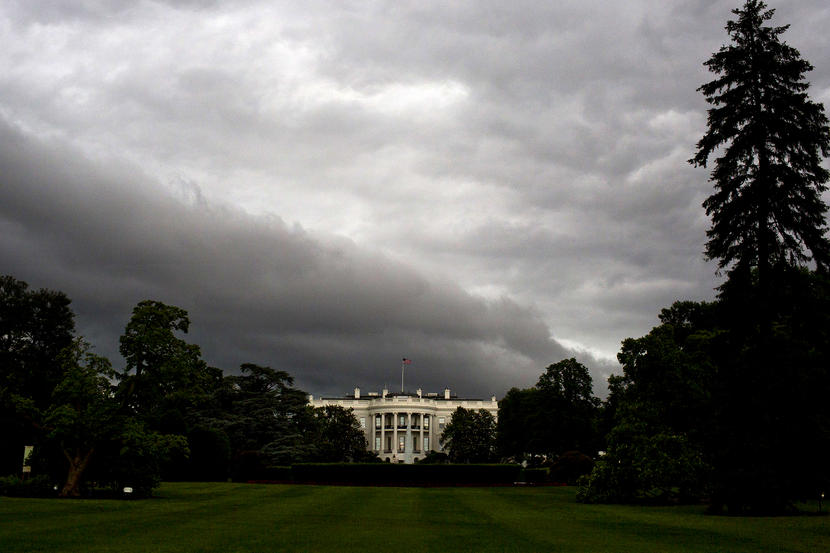In The Nation, Alyssa Battistoni reviews Climate Leviathan: A Political Theory of Our Planetary Future by Geoff Mann and Joel Wainwright, which takes Thomas Hobbes’s theory of authoritarian state power (Leviathan) as a basis for imagining the different forms the state might take in a future shaped by severe climate change. The authors sketch the outlines of a possible world government, as well as traditional nation-based governments that resort to authoritarian repression to address climate change. More difficult to envision, notes Battistoni, is a future global movement against climate change that is both anti-capitalist and anti-state—although this is the future we need the most. Read an excerpt from the review below.
In this context, Geoff Mann and Joel Wainwright’s new work of political theory, Climate Leviathan, is a welcome addition to the small but growing body of climate writing on the left. It’s a book explicitly aimed at understanding the political dimensions of climate change instead of relegating them to a paragraph or two in the concluding section. It also takes a different tack than most works on climate politics. The authors are not interested in why we aren’t acting to curb carbon emissions; instead, they’re interested in the kinds of political scenarios that are likely to emerge in response to the approaching ecological crises.
Climate change will be so central to human life and global politics in the coming years, Mann and Wainwright argue, that the response to it will shape the entire future world order, not merely the statements that issue out of the United Nations at the end of every year. If the left is to play a part in shaping this new world, they continue, it needs to think seriously about the “political tools, strategies, and tactics” at its disposal. Climate change, though a novel and previously unimaginable problem, does not actually require a radical departure from traditional left struggles for freedom, equality, and justice; it simply poses new versions of familiar dilemmas. Our political thought doesn’t need to address climate change directly to offer insights into the role that the left can play in responding to it, but we will need to develop old ideas in new directions if we are to navigate a world that is now changing radically.
Image of the White House via MSNBC.
